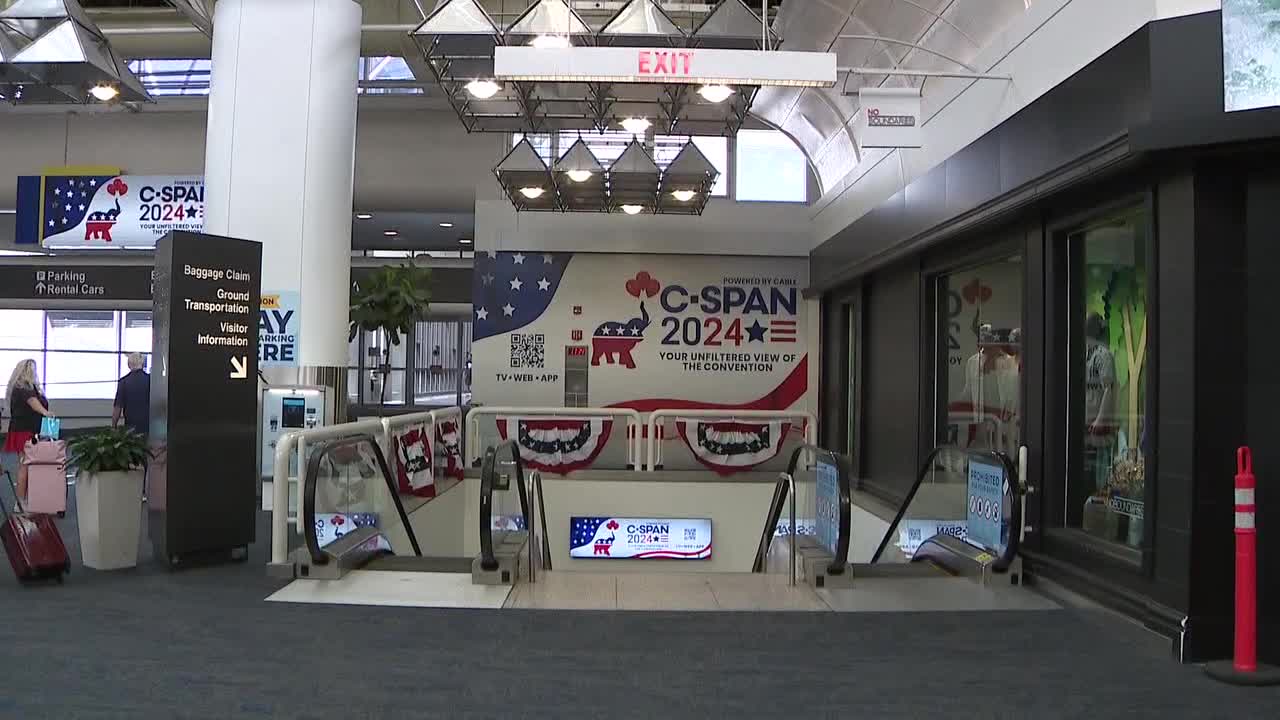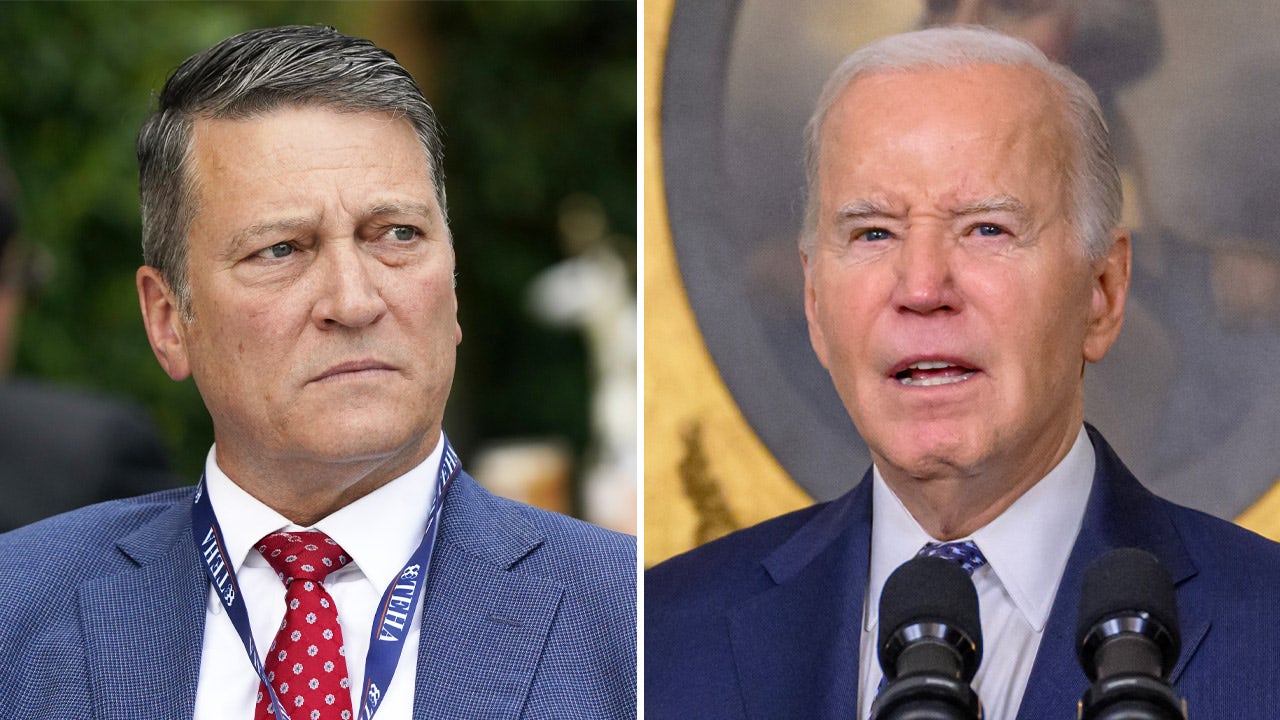North Dakota
Building cost overrun questions still loom for top North Dakota officials

BISMARCK, N.D. (AP) — North Dakota state officials are still grappling with the aftermath of a more than $1 million cost overrun on a building leased by the late attorney general, a more than year-old controversy that could reach a prosecutor’s desk for review for potential charges.
The issues involve a state lawmaker who was in a position to benefit from the lease and the deletion of the late attorney general’s official email account days after his death last year.
The overrun shocked lawmakers, who raised concerns about trust and how the building project was handled. The project was for consolidating divisions of the attorney general’s office in one location in Bismarck.
The Legislature’s audit panel last year sought an outside investigation into the overrun incurred under late Attorney General Wayne Stenehjem, who died in January 2022 at age 68 from cardiac arrest. Current Attorney General Drew Wrigley tapped Montana’s Division of Criminal Investigation for the probe.
An investigator returned a lengthy report last month, nearly a year after the panel sought further investigation following a critical report by the state auditor. The Montana investigator wrote that any North Dakota legal decisions are outside his scope.
Republican state Rep. Emily O’Brien, who chairs the panel, said she plans to schedule a meeting on the report before Thanksgiving. The committee is expected to decide whether to forward the Montana report to an outside prosecutor for evaluation for potential charges, she said.
O’Brien told The Associated Press the report is “incomplete and confusing,” that some details conflict and its timeline is difficult to follow for people unfamiliar with the issues.
The Montana report indicates that the initially estimated $1.7 million overrun resulted from change orders and pandemic-related issues, according to emails and interviews the investigator cited. The overrun was covered in 2021 by various attorney general’s office funds and by rolling $400,000 into future lease payments.
Wrigley declined to comment on the report. His office, after reviewing invoices, has recouped about $625,000 from the overrun, including the $400,000 rescinded from future lease payments, said Wrigley, who made clear the full amount isn’t final.
Gov. Doug Burgum appointed Wrigley in February 2022 to fill out the remainder of Stenehjem’s term. Wrigley in June 2022 disclosed the cost overrun to state lawmakers in a public meeting. State Auditor Josh Gallion’s office subsequently probed the issue, presenting an investigative report in September 2022, when the audit panel sought more investigation.
Gallion’s report detailed Republican state Rep. Jason Dockter’s status as a co-owner of the companies that own the building and that worked on the building project. Dockter was a past campaign treasurer to Stenehjem, as well as a friend. He said his relationship with Stenehjem was not a factor in obtaining the lease.
He declined to comment on the Montana report. Dockter said the state’s small population means many people, including lawmakers, have crisscrossing relationships.
“How does anyone do anything around here without really knowing someone?” Dockter said.
His attorney, Lloyd Suhr, told the AP, “We’re not going to make any comments until the process has played itself out, whatever direction it ends up going.”
Dockter’s business partner C.J. Schorsch, who managed the project’s construction, did not immediately respond to an email for comment on the report and the recouped costs.
Building owner Stealth Properties LLC last year gave a nearly $225,000 check to the attorney general’s office for overpayment after reconciliation, and it removed the $400,000 from the lease rate, according to the Montana report. Stealth’s attorney did not immediately return a phone message for comment.
Media records requests in July 2022 uncovered the deletions of Stenehjem’s state email account and that of his chief deputy, Troy Seibel, done at the direction of Stenehjem’s executive assistant, Liz Brocker, who resigned just after the deletions came to light.
“We want to make sure no one has an opportunity to make an Open Record request for his emails, especially as he kept EVERYTHING. This was approved by Troy,” Brocker said in her email directing Stenehjem’s account be deleted days after his death.
A woman who answered the phone at the Burleigh County State’s Attorney’s Office, where Brocker now works, said Brocker does not take press calls. Brocker did not respond to a Facebook message or a phone message at a number believed to be hers. State’s Attorney Julie Lawyer declined to comment.
Wrigley replaced Seibel, who left his job in March 2022. Seibel did not respond to a phone message. An attorney who has previously represented him did not immediately respond to a phone message.
Wrigley, a Republican, won election to a full term as attorney general last year. Dockter won reelection, unopposed.
North Dakota’s Republican-controlled Legislature passed laws earlier this year to increase transparency of who owns state-leased property and to set requirements for retaining state government emails.
The state Office of Management and Budget will be hiring a property administrator and a statewide contract manager in coming months, and it will be drafting administrative rules concerning leasing, spokeswoman Jen Raab told the AP.

North Dakota
North Dakota Ethics Commission sees uptick in campaign complaints, but lacks rules to enforce

The North Dakota Ethics Commission has seen a rise in campaign-related complaints but lacks tools to address the allegations, Executive Director Rebecca Binstock said.
Commissioners are considering adopting a new set of rules so the board has more authority to investigate the complaints.
As of late June, 23 complaints had been filed with the commission since the beginning of the year. Of those, 10 related to campaigns, Binstock said. The commission received 17 complaints in all of 2023 and 14 in 2022. In both 2023 and 2022, two complaints each year related to campaigns. Generally, ethics complaints are confidential unless the commission determines them to be substantiated and the accused has the ability to appeal.
“We’ve also received, I want to call it anecdotal information, from the public, from state agencies, state employees as well as elected officials that this particular election cycle is different,” Binstock told commissioners during a Wednesday meeting. “That anecdotal evidence aligns with what we see in real time with the complaints that have come in.”
Secretary of State Michael Howe said his office has received reports of alleged improper campaign finance disclosures on materials like signs and fliers, though he’s not sure if there’s been more this election cycle compared to previous years. The Secretary of State’s Office does not enforce compliance with campaign laws.
“We say, ‘Well, there is a requirement of that North Dakota Century Code,’” Howe said. “‘If you feel the law has been broken, you need to reach out to the state’s attorney in the county where you think this crime has been committed.’”
Recently, there have been allegations of campaign fraud in North Dakota submitted to federal authorities.
Julie Fedorchak’s campaign earlier this month filed complaints with the Federal Election Commission and Federal Communications Commission after text messages were sent en masse to North Dakotans the day of the primary falsely claiming she had dropped out of the U.S. House race.
A North Dakota resident in May filed an FEC complaint against Rep. Brandon Prichard, R-Bismarck, claiming he may have engaged in campaign finance activity that violates federal election law. Prichard has denied wrongdoing. The status of the complaint is not public.
The 2018 constitutional amendment that created the Ethics Commission allows the board to adopt rules related to elections, lobbying, corruption and transparency to enforce ethical behavior by state officials.
Under the constitution, the Ethics Commission can investigate alleged violations of its own rules, the constitutional amendment or “related state laws.”
Its ability to investigate campaign complaints is still very limited, however. For one, the commission has yet to adopt any rules on campaign ethics.
North Dakota does have statutes relating to campaign ethics — most of which impose misdemeanor penalties — which could fit the definition of “related state laws” under the constitutional amendment. However, because the commission does not have prosecution authority, it cannot investigate alleged violations of criminal law, Binstock said.
There are other ways to address complaints, though. The Ethics Commission may work with the complainant and the accused to resolve the complaint informally, for example.
Additionally, if a complaint accuses someone of a criminal violation, the Ethics Commission is required by law to forward the allegation to a state’s attorney.
State’s attorneys have discretion over whether or not to charge someone with a crime. Binstock noted during the meeting that when an ethics-related allegation crosses the desk of a state prosecutor, chances are they’re already dealing with a heavy caseload.
A letter dated May 10 provided to the North Dakota Monitor indicates that Binstock referred a complaint about a legislative race to Burleigh County State’s Attorney Julie Lawyer. The prosecutor has not responded to requests for comment and Binstock is unable to comment on specific complaints.
If a prosecutor declines to bring charges related to an ethics complaint, the case is handed back to the commission. But again, since the commission has neither prosecution authority nor any rules pertaining to elections, its staff may be unable to investigate the complaint.
“If the Ethics Commission doesn’t have a corresponding ethics rule, we’re left with a criminal statute that the Ethics Commission can’t investigate under,” Binstock said.
The commission during the meeting gave staff the greenlight to draft election rules. The draft rules will likely go before the commission for consideration sometime in the next few months, Binstock said.
In 2018, Burleigh County prosecutors charged Bismarck legislative candidate Duane Sand with a misdemeanor that alleged he misstated opponent George Keiser’s voting record in a campaign ad. The charge, publication of false information in political advertisements, was prompted by a police report Keiser filed and a finding from a prosecutor that the act fit the elements of the crime, The Bismarck Tribune reported.
Sand later filed police reports accusing Keiser and others of breaking the same law. The charge against Sand was dismissed after all involved reached a private settlement and agreed to stop pursuing the complaints.
This story was originally published on NorthDakotaMonitor.com
______________________________________________________
This story was written by one of our partner news agencies. Forum Communications Company uses content from agencies such as Reuters, Kaiser Health News, Tribune News Service and others to provide a wider range of news to our readers. Learn more about the news services FCC uses here.
North Dakota
Airports hope to land state funding for major projects
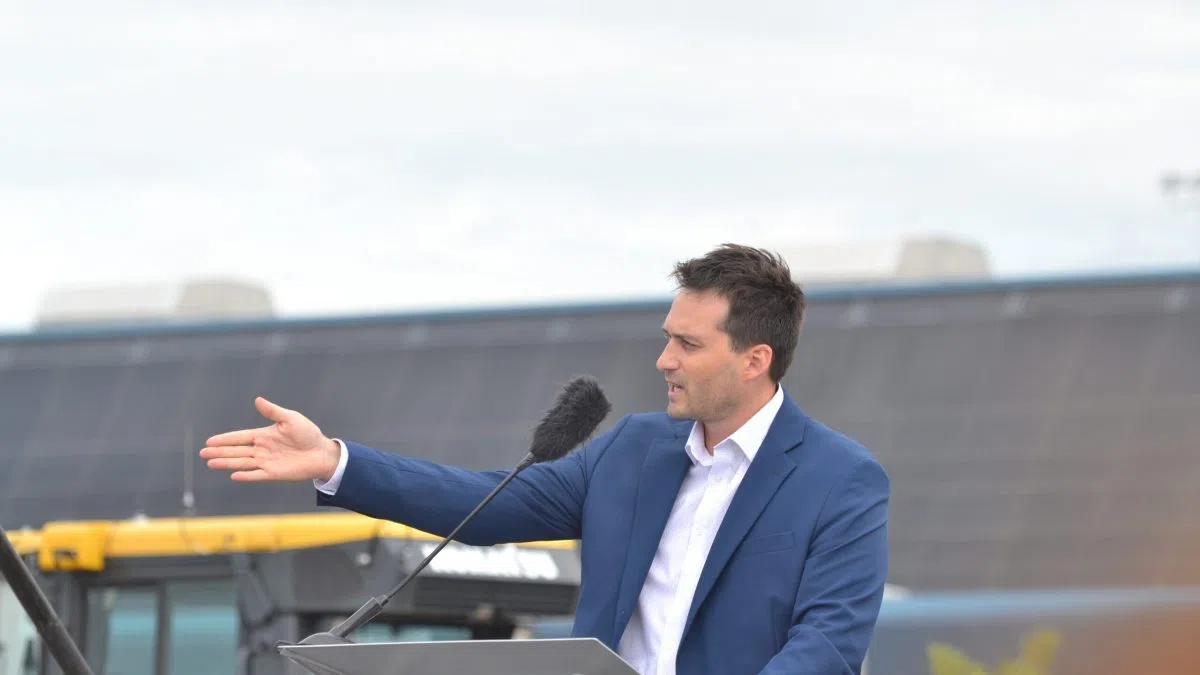
Kyle Wanner, director of the North Dakota Aeronautics Commission, speaks July 1, 2024, at the groundbreaking ceremony for an expansion of Hector International Airport in Fargo. (Jeff Beach/North Dakota Monitor)
BY: JEFF BEACH
FARGO (North Dakota Monitor) – Three North Dakota airports have plans for major upgrades and will be asking the state Legislature to approve a combined $120 million for the projects.
Fargo’s Hector International Airport had its official groundbreaking Monday for a terminal expansion and parking garage. The airports in Grand Forks and Dickinson also have what airport officials call “generational projects,” that might come along every 30 to 40 years.
Fargo is seeking $60 million for its project and Grand Forks and Dickinson each are requesting $30 million.
At Monday’s event in Fargo, Kyle Wanner, director of the North Dakota Aeronautics Commission, called airports “economic engines” for the state.
“They sometimes need a major overhaul or an upgrade,” Wanner said.
Kelly Braun, manager of the Dickinson Theodore Roosevelt Regional Airport, said there is not another viable source of funding for its plans to build a new terminal next to the existing runways.
He said the plans for a new terminal are in the design stage for the $48 million project. He said there is local and federal funding for the project.
It is upgrading a secondary runway in preparation for that project.
Ryan Riesinger, executive director of the Grand Forks International Airport, said it plans to reconstruct its main runway – an approximately $75 million project.
That means ripping up asphalt that is about 1 foot deep and the original concrete that is 1 foot deep.
Riesinger said the concrete was poured on top of a clay soil base. The modern runway will be dug down about 4 feet and be better engineered to handle the weight of large planes as well as better drainage.
“So it’s much like reconstructing the interstate, only deeper, thicker,” Riesinger said.
The Grand Forks airport is currently upgrading its secondary runway to keep the airport humming while the main runway is redone over several construction seasons.
Wanner said while there are smaller airport projects all over the state, these three high-priced upgrades have been identified as needing extra state funding.
“There’s just no other path forward,” Wanner said in an interview.
North Dakota House Majority Mike Lefor, R-Dickinson, said he has been briefed on the projects and is supportive, as long as the revenue is available when lawmakers convene in January. He said a proposed property tax reform measure on the November ballot could change the budget picture dramatically.
“I’m generally supportive of this proposal, because I see the need,” Lefor said.
North Dakota’s commercial airports in 2023 had 1.1 million boardings, an 11% overall increase from calendar year 2022, according to the Aeronautics Commission. Fargo and Devils Lake recorded their best year on record.
North Dakota airports also had their busiest May on record, according to the Aeronautics Commission. Airline passenger boarding numbers reached 103,068 passengers for the month, breaking a May record set in 2014 during the oil boom.
Braun said the Dickinson airport was designed for about 9,000 passengers annually but last year had about 25,000, with projections of more than 30,000 in the next couple of years.
He said officials hope to have the new terminal open in late 2027.
The $200 million Hector project that is underway is for a four-story parking structure with about 1,000 spaces and a skyway to the terminal.
The terminal will add four more gates and there will be upgrades to the terminal interior. The project is expected to be completed in 2026.
At Monday’s groundbreaking, U.S. Sen. John Hoeven touted recent airport upgrades in Minot and Williston and called Fargo’s airport “the flagship” for the state.
“This is a quality of life issue,” Hoeven said of air travel. “So we’re going to have the best airport to go with the greatest people and the best state in the country.”
North Dakota
Behind the Badge – Boating Accident on Fourth of July Weekend
Boating Accident – Fourth of July Weekend
District Game Warden Noah Raitz
The Fourth of July weekend is one of the busiest stretch of days game wardens have during the summer.
Sure, there are busy days when the fish are biting, or the weather is perfect for a lake day.
But, without a doubt the Fourth of July will have recreators flocking to their lakes to get the boat on the water and enjoy the long weekend.
As lakes get crowded it becomes more important for boat operators to understand boating regulations and how to be safe on the water.
This starts at home before the boat is even hooked up.
One of the most common violations I find is not having the required number of personal flotation devices.
PFDs are usually stored in one of the front compartments or under the seats, depending on the type of boat.
It’s not uncommon for boat owners, who have enough PFDs, to struggle to remember which storage compartment they put them in.
Not knowing where your PFDs are stored on your boat is a safety concern because you never know when you might be put in an emergency where the PFD is needed.
While working the Fourth of July weekend in 2023, I received a call that a personal watercraft and a boat had collided.
I was at a nearby lake when it happened and was able to respond quickly.
I was told the boat had quickly started heading toward the boat ramp.
The caller told me it sounded like a shotgun blast when they collided.
The boat, almost full of passengers, was pulling a tuber and was making the typical “S” shaped maneuver as they followed the shoreline to a bend in the lake.
The PWC was heading toward this same bend from the opposite direction.
Once they recognized each other, they both attempted a turn but neither one was able to get out of the way.
A lot of questions started running through my head because an “accident” where nobody made a mistake is uncommon.
How close were they to the shoreline? Where was the attention of the driver? Who was the give-way vessel and who was the stand-on vessel? Was the throttle applied when the PWC attempted to turn? Almost all accidents are avoidable if state boating regulations are followed.
Upon arrival at the boat ramp, I could immediately see the boat that was involved in the collision was on a trailer with a large piece of the boat on the ground and a hole that matched it on the stern.
The driver said that when the collision happened, he could see water rushing in the back almost immediately.
He expressed that if he had not been able to drive the boat, they would have sunk within a few minutes.
The impact had enough force to bend the bow eye to one side along with multiple chunks of fiberglass missing on the PWC.
After the PWC collided with the boat, the momentum of both vessels caused the tuber to continue forward and collide with the PWC as well.
The tuber was able to lean to his side and keep the inner tube between himself and the PWC, acting as a cushion and bouncing him off.
The collision did not result in any injuries, but it was an extremely close call for everyone.
It’s hard to speculate what could have happened to the passengers if the collision happened a few seconds earlier or later, but I am almost certain there would have been more injuries.
Had the boat sunk, would all the passengers been able to swim to shore or locate a PFD?
What if the PWC operator hit his head and was knocked unconscious while the boat took off toward shore?
What if the tuber was unable to react fast enough and collided with the PWC before he could lean to his side?
Boat safety equipment and boating regulations are crucial for the safety of yourselves and others on the water.
The purpose of a PFD is to keep you upright in the water, even if you are unconscious.
Obviously, a PFD can’t stop a collision from happening, but it could save your life in an emergency.
It goes beyond just having a PFD though.
I would encourage everyone to review our boating regulations and if you have a question, call your local game warden.
-

 News1 week ago
News1 week agoA Florida family is suing NASA after a piece of space debris crashed through their home
-

 Politics1 week ago
Politics1 week agoBiden official says past social media posts don’t reflect ‘current views,’ vows to support admin ‘agenda’
-

 World1 week ago
World1 week agoNew Caledonia independence activists sent to France for detention
-

 World1 week ago
World1 week agoIsrael accepts bilateral meeting with EU, but with conditions
-

 World1 week ago
World1 week agoNetanyahu says war will continue even if ceasefire deal agreed with Hamas
-
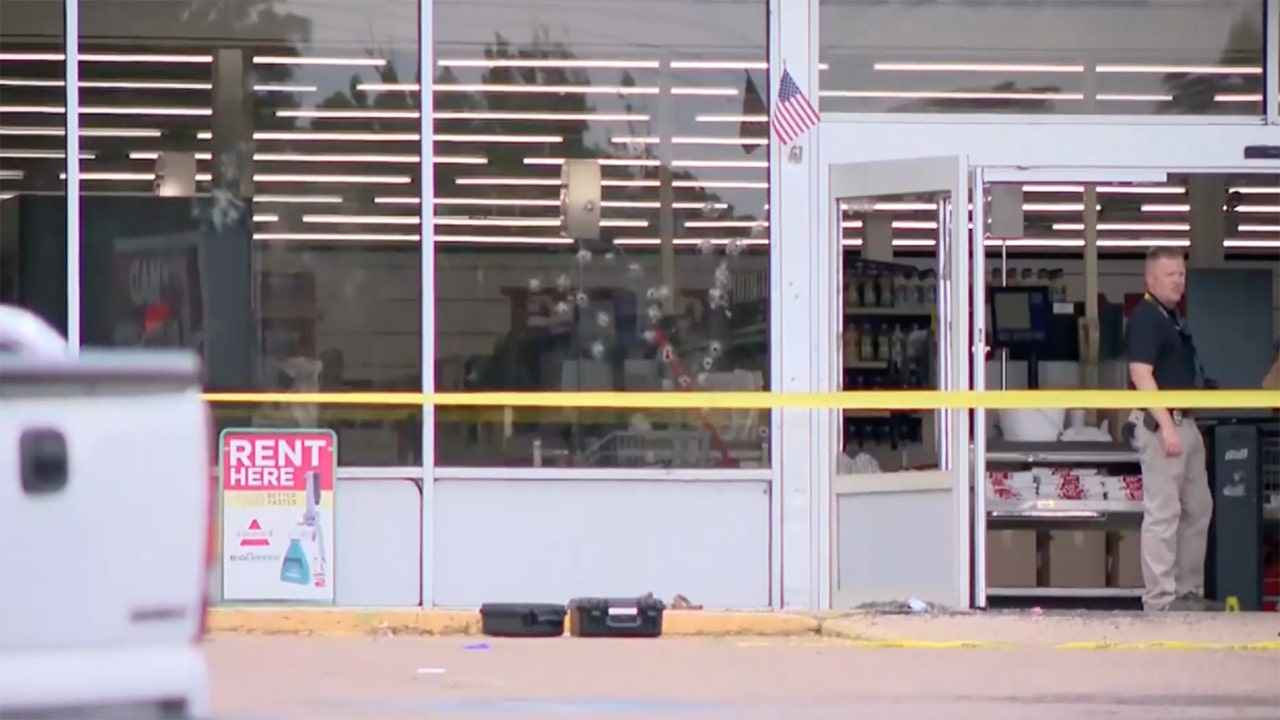
 News1 week ago
News1 week agoArkansas police confirm 4th victim died in grocery store shooting
-
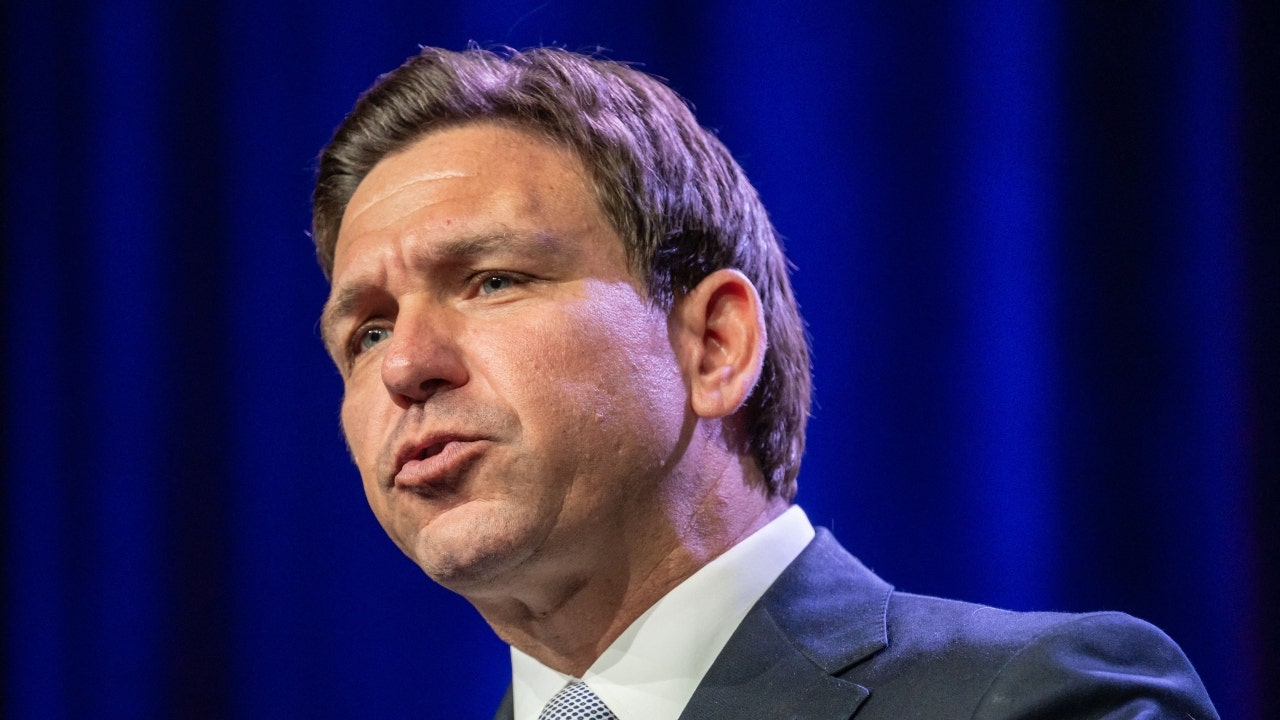
 Politics1 week ago
Politics1 week agoDeSantis signs bill allowing residents to kill bears, vetoes bill that fines slow left lane drivers
-

 News1 week ago
News1 week agoWoman accused of trying to drown Muslim child in Texas in possible hate crime
